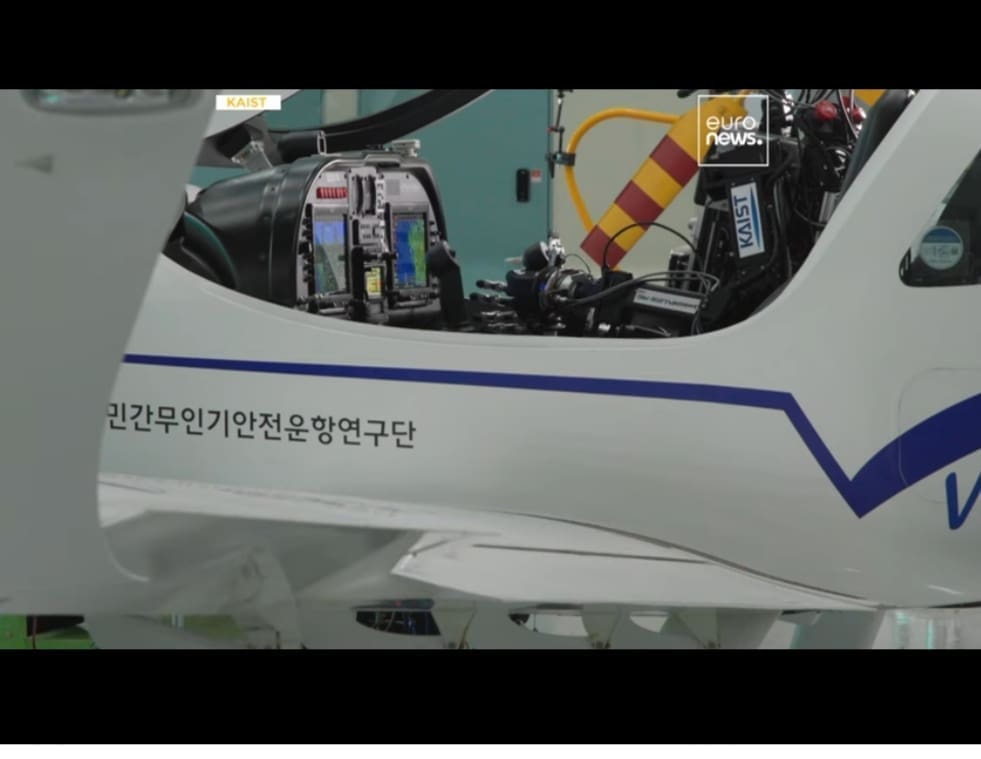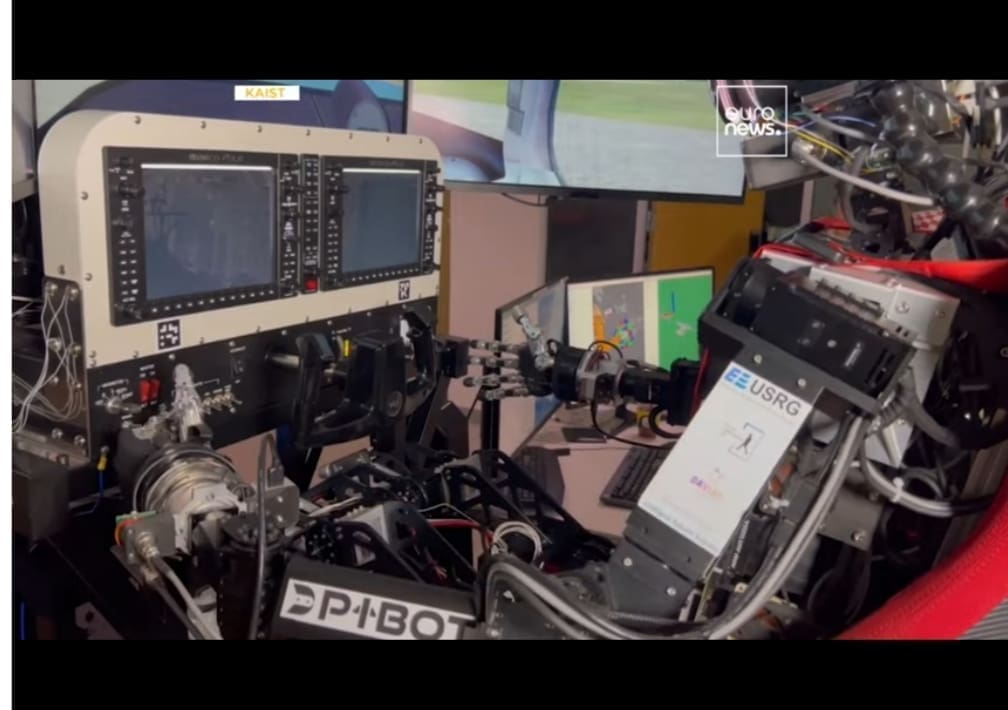Scientists at the Korean Advanced Institute of Science and Technology have unveiled an innovative humanoid robot named “Pibot”, this robot integrates artificial intelligence to effectively pilot aircraft without requiring significant modifications to the cockpit.

Smart and Skilled:
Standing at 160 cm tall and weighing 65 kilograms, Pibot can handle control mechanisms, maintain altitude even in challenging conditions, and track vital statistics within the aircraft using external cameras, as reported by Euronews.

Language-Powered Memory:
Unlike traditional manual reference reading, Pibot can easily store documents due to its extensive memory capacity, which utilizes large language models similar to chatbots such as ChatGPT, based on advanced AI technology.
Emergency Responsiveness:
Notably, Pibot can respond to emergencies faster than human pilots.
A Revolutionary Approach:
Instead of remotely controlled drones, the researchers focused on developing a robot capable of piloting current large aircraft effectively, David Shim, Assistant Professor in the Department of Electrical Engineering at the Korean Advanced Institute of Science and Technology, stated that Pibot can fly an airplane just like a human pilot by skillfully managing all individual control elements in the cockpit, which were designed for humans.

Adaptive and Easy to Use:
Pibot can adapt to new cockpit environments with just a single button press, Shim explained, “With the robotic pilot, if we teach it an individual aircraft configuration, you can simply fly by selecting the aircraft type.”
Language Learning for Aviation:
The researchers collaborated with AI chatbots, such as ChatGPT, to develop methods for Pibot to comprehend pilot manuals, they are currently working on creating their own large language models tailored specifically for Pibot.
Versatile Applications:
Pibot could be deployed in harsh environments not suitable for humans, such as tanks and vehicles.
Military Potential:
Since Pibot was developed under a contract with the South Korean Ministry of Defense, Shim anticipates that the robotic pilot will find military use by as early as 2026.
Future Collaborations:
While simulations have been conducted so far, discussions are underway with Airbus to use Pibot for test flights using their recently developed electric aircraft.

